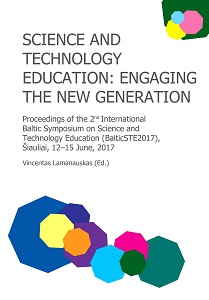RESEARCH BASED LEARNING AND PROPRIOCEPTION
RESEARCH BASED LEARNING AND PROPRIOCEPTION
Author(s): Boris Aberšek, Kosta Dolenc, Andrej Flogie
Subject(s): Education, School education
Published by: Scientia Socialis, UAB
Keywords: cognitive education; research based learning; proprioception;
Summary/Abstract: Much of the discussion is currently connected with our thought, our judgements, with our brain, especially connected with the learning process and methodology how to effectively learn. Most of our judgments and actions are appropriate most of the time. As we navigate our lives, we normally allow ourselves to be guided by impressions and feelings, and the confidence we have in our intuitive beliefs and preferences is usually justified. But not always. We are often confident, even when we are wrong, and an objective observer is more likely to detect our errors than we are. But a problem arises if we neglect comments or proposals of this observer. In this case you must take into account proprioception. It could also say “self-perception of thought”, “self-awareness of thought” or “thought is aware of itself in action”. Whatever terms could be used, thought should be able to perceive its own movement, be aware of its own movement and if so, at the process of problem solving (problem and research based learning) we are developing the system of thinking in an intuitive, heuristic and slow, systematical thinking.
- Page Range: 11-14
- Page Count: 4
- Publication Year: 2017
- Language: English
- Content File-PDF

